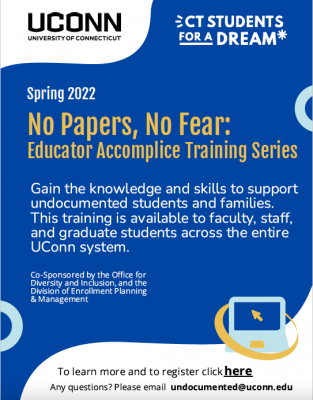There are folks across the university ready to provide support and guidance, but you need to reach out for help. Listed below are offices you may reach out to for assistance. Reaching out early is key as there are more options to explore earlier in a semester.
ACADEMIC RESOURCES
Academic or Faculty Advisor: A student’s major advisor is a resource in navigating academic challenges. Some academic departments also have program staff that can help you determine next steps academically and connect you to resources. If you are a graduate student, make sure you discuss all possible options with your major advisor. If you aren’t sure who your advisor is, you can find this information in StudentAdmin.
Advising Centers: Each school or college as well as each regional campus has an office or center with oversight over undergraduate advising. These centers/offices serve as a resource to students, faculty and staff on a wide range of advising matters, including:
- Permission to register for excess credit or add or drop a course
- Requesting a late withdrawal from a course
- Academic probation, dismissal, and appeals of academic dismissal
- Requesting a general education substitution
To learn more about Advising resources, visit the University Advising website.
Academic Support Services: Graduate and undergraduate students can seek academic support from the Writing Center and the Academic Achievement Center. The Writing Center provides online writing assistance to both undergraduate and graduate students. An overview of support for graduate students is available at this link; undergraduates can view this link to learn about available services. The Academic Achievement Center (AAC) offers an array of academic support services, including coaching, mentoring, and student success workshops. Although many of the offerings are geared toward undergraduate students, graduate students can contact the AAC directly to discuss specific support needs and will be referred to available resources. Undergraduate students may seek support from the Q-Center for classes that have a quantitative component. Specifically, the Q-Center provides direct assistance to students via peer tutoring, review sessions, and the creation of innovative learning tools.
Course Instructors: Students can speak with their course instructor to discuss options within the course, such as opportunities to make up work or extra time on an assignment, as well as the possibility of an Incomplete grade. The Graduate and Undergraduate Catalogs provide more information on Incomplete grades for students considering this option.
Tutoring: Students in need of tutoring may find help within specific academic programs. Below is a list of tutoring resources students may want to access for potential help.
The UConn Library is available to help students with research assistance.
STORRS UNDERGRADUATE RESOURCE
Dean of Students: Staff in the Dean of Students Office are available to support undergraduate students with academic, personal, and other concerns that impact their student experience. Staff in this office provide support without judgement and can help students as they consider completing current courses, rescheduling final exams, or processing a withdrawal or cancellation for those considering taking a break. To schedule a meeting please call 860-486-3426 or use the chat feature on our website to request a meeting with an Assistant Dean. The Dean of Students Office also offers drop-in support, Monday through Friday from 1:00pm-3:30pm with no appointment needed at that time.
REGIONAL UNDERGRADUATE RESOURCE
Regional Student Services Staff: Undergraduates at the regional campuses needing support of an academic or personal nature should connect with the Student Services staff on their home campus. Regional campus Student Services staff can help students as they consider completing current courses, rescheduling final exams, and processing a withdrawal or cancellation if you are considering taking a break. Visit this website to schedule an appointment with a Regional Student Services staff member.
GRADUATE STUDENT RESOURCE
Graduate Student and Postdoctoral Affairs, The Graduate School: The Graduate School staff can answer questions about both academic and non-academic resources that are available to graduate students and advise on strategies for navigating challenges. If you are struggling to determine what academic resources are available, you can email gradschool@uconn.edu and a staff member can help you. Graduate students who feel the need to step away from their academic studies temporarily or to withdraw from their program can find more information about taking a leave of absence or voluntary separation at The Graduate School website or by emailing gradseparation@uconn.edu.
HEALTH AND ACCESS SERVICES
Center for Students with Disabilities: Students may want to explore the possibility of accessing accommodations with the Center for Students with Disabilities (CSD). To begin the process of requesting accommodations, visit csd.uconn.edu and click on the MyAccess button to get registered. You will then be assigned to work with a Disability Services Provider who will engage with you to discuss your concerns and appropriate accommodations. Students requesting accommodations will need to provide supporting documentation. Please share the guidelines with your provider to obtain the appropriate documentation. Contact Timothy Smagacz, Program Assistant, at (860) 486-2020 or myaccess-csd@uconn.edu with questions regarding documentation.
Student Behavioral Health Services (SBHS) – The Student Behavioral Health Service (SBHS) provides evaluation and treatment to medical, dental and graduate students at UConn Health. To learn more about the resources available visit the SBHS website.
Student Health and Wellness – Mental Health: SHAW provides mental health services to promote the emotional, relational, and academic potential of all undergraduate and graduate students. SHAW-Mental Health offers:
- Rapid access screening appointments
- Emergency/Crisis assessment
- Individual and group therapy
- Medication management
- Mindfulness/Meditation/Yoga workshops
- Referral and off-campus support services
Storrs students (undergrad or graduate) may access SHAW-MH by calling 860-486-4705 or schedule a screening appointment online.
Regional campus students (undergrad or graduate) seeking mental health resources will find campus specific contact information at this link.
We are here to help. Please reach out to one of the many offices listed and the staff and faculty will try their best to provide support and identify solutions. Questions about this information should be directed to dos@uconn.edu or gradschool@uconn.edu.



